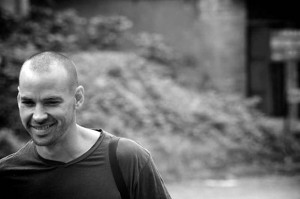In Memorium
http://pratergroup.co.uk/?p=177 
In order to live alone, said Aristotle, one must be either an animal or a god. The third case is missing, added Nietzsche, one must be both – a philosopher. I knew a man who was all three. He jokingly called himself ‘The Great White Explorer’. I preferred ‘river god’ and if you’d seen him agilely navigating down grade 6 rapids in his kayak, you’d probably agree.
Hendrik Coetzee was one of the last great explorers whose exploits included walking over 1,000 miles down the East African coast and numerous kayaking expeditions through the uncharted wilds of Africa, tracing the source of the White and Blue Niles. He once disappeared for months into the heart of the Congo alone, preferring to go hard and solo. If anyone could speak with any authority on the merits of solitude, it was Hendri. He would often tell me that the price of freedom was loneliness because it is a road seldom traveled by the multitudes. He was the hermit on the mountain, the wanderer seeking lost lands and new, the rare Zarathustra who refused the comfortable inertia of the ordinary and known to carve new paths.
“Freedom to do what you want …is a heavy burden to carry and a very lonely road to walk.” He once wrote. “Freedom is an extreme and because it is by definition selfish, many search for it but once they come close enough to grasp the depths and scope of the loneliness they have to cross in order to achieve it, few have the will or desire to take the last committing steps across a barrier of no return for a reward that is not guaranteed. Most people settle for a middle ground on the continuum between slavery and freedom.”
Hendri understood that there were different kinds of freedom, but this most basic kind was perhaps the more difficult to achieve and the most selfish. “Solo expeditions, mine at least, are the purest form of selfishness I can think of. You might not be free from your environment’s demands but you are free to choose your response to them. I do it for a variety of reasons, all called me. If a solo mission kills me one day, I will not be the one suffering. It only hurts if you survive. The ones who love me will be left to deal with the sorrow.”
As if predicting his own end, the mission through the Congo with fellow kayakers Ben Stookesberry and Chris Korbulic in December 2010, was his last. Exactly one year ago today, whilst paddling down the Lukuga, a giant crocodile dragged him from his kayak. His body was never found. Perhaps he could not have gone any other way; Hendri would have been furious if he’d died in his bed. He truly lived all the life that was in him. How many can say the same?
When Einstein’s life-long friend Michael Besso died, he wrote to the grieving family, “This signifies nothing. For us believing physicists the distinction between past, present, and future is only an illusion, even if a stubborn one.” Hendri used to speak of death as the last great adventure. I like to think the great white explorer is still out there in the space/time continuum, wandering under familiar yet unknown firmaments. I believe the mark of a truly great [man] is in the lives he continues to effect after death. Hendri Coetzee was such a man.
As all men are born
So all men will die,
But it is the life spent between
Wherein different caliber lie.
Most are content to ride along
At fate and fortune’s whim
And never rise above the norm
But you’ll not hear of them.
The legends both of present and yore,
Discontent with mediocrity
Determined to live an impossible dream
To be all they could be,
Struggled over obstacles
Through brave and fearsome test,
To live the best day ever
And stand apart from the rest.
This is what makes legends of men,
The secret Hendri would give
To those of us still left behind,
‘All men die, not all really live.’
faith
dicembre 8, 2011 @ 07:40
so beautiful Juliana…
sabine
dicembre 10, 2011 @ 20:33
it’s really good! I’m totally awed at your writing talent! You are amazing!
Martin
gennaio 25, 2012 @ 21:27
What a beautiful piece of writing! I followed my friend’s Julia Bruk’s ‘Like’ from FB and happened on your blog. Since I am too a kayaker, I can only hope someone of your talent writes a piece for me when my inevitable end comes. 🙂 No death wish here, but I would hope it would be on the water, while having matters settled with loved ones…
jennifer
febbraio 4, 2012 @ 20:11
Julia, PS. best of luck on your bike Qwest.
P Vince
luglio 19, 2014 @ 01:26
Latin: “… Vita mutatur, nic tollitur …”
“life is changed, not ended”
David Curran
agosto 20, 2016 @ 07:24
I’m just pissed I never met him. Although from what I have read, watched, he has changed the way I look at my life…. life in general.
James Chatwin
maggio 18, 2017 @ 13:11
Gorgeous tribute to a legendary explorer. I only learned of Hendrik through my reading of an Outside magazine piece entitled, ‘Consumed.” While that title never sat well with me, I felt that the author made up for it by centering the story around the romance between him and you. After Hendrik was dragged beneath the water fighting for his life I was left wondering what he would miss the most, his back country adventures or you? From what little I know, my answer is you.